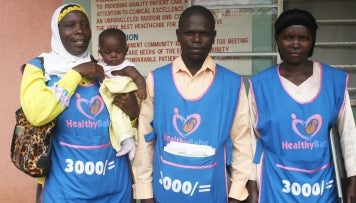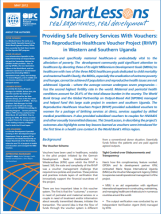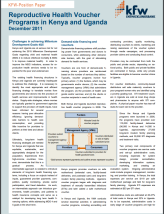Related

Technical Assistance
Uganda: Reproductive Health Vouchers
Grant Funding
Uganda: Reproductive Health Vouchers in Western Uganda
Grant Funding
Uganda: Reproductive Health Voucher Program (RHVP II)
October 24, 2007 |Press releases
US$4.3 million World Bank-administered Grant for Reproductive Health Vouchers in Western Uganda
April 16, 2020 |Feature Stories
Helping Ugandan mothers realize their dream of delivering a healthy baby
July 05, 2011 |Feature Stories
Uganda: Making Pregnancy Safer
Providing Safe Delivery Services With Vouchers: The Reproductive Healthcare Voucher Project in Western and Southern Uganda
GPOBA presented key lessons learned in the Reproductive Healthcare Voucher Project (RHVP) in Uganda through the International Finance Cor

Vouchers for Reproductive Health Care Services in Kenya and Uganda
Only about one in every four Kenyans has health i


